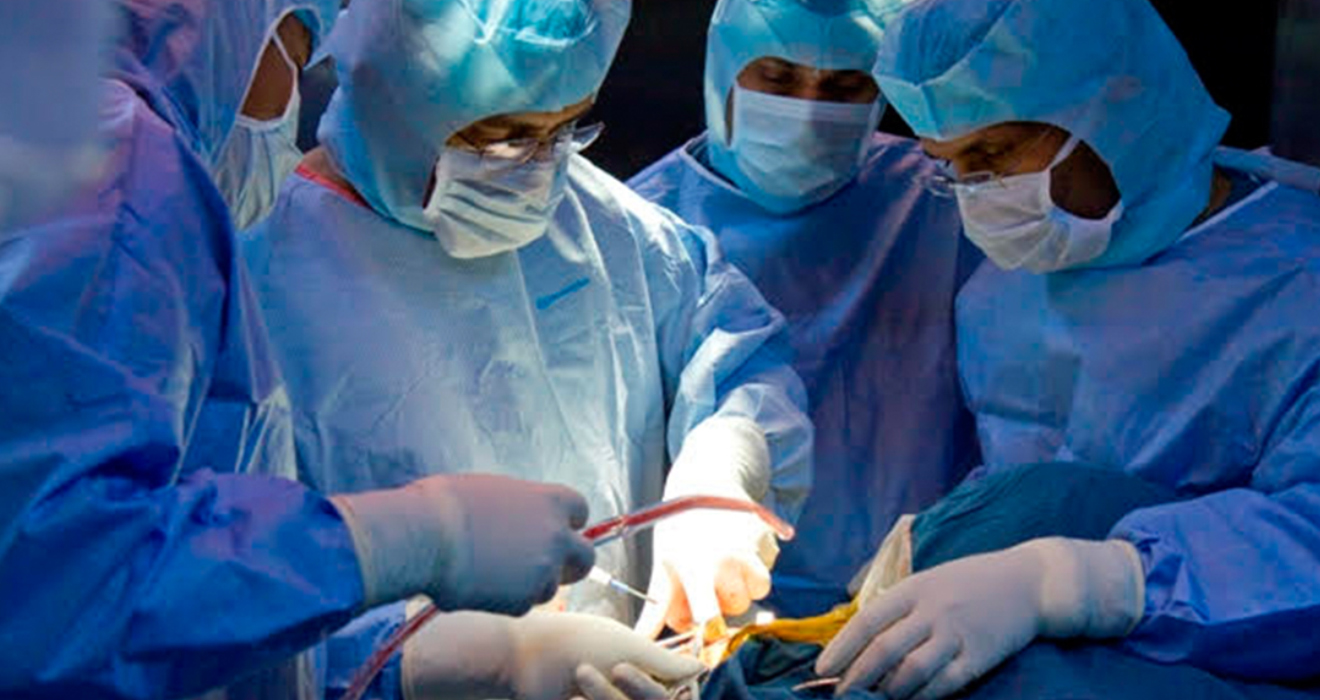Surgical Gastroenetrology Department
Surgical gastroenterology, also known as gastrointestinal (GI) surgery, is a specialized field of surgery focused on the surgical treatment of diseases affecting the digestive system. This includes the esophagus, stomach, intestines, liver, pancreas, gallbladder, and bile ducts. A surgical gastroenterologist, or GI surgeon, is trained to perform complex procedures to treat various GI conditions, both benign and malignant.




Diagnosis and Evaluation:
- Conducting thorough medical histories and physical examinations.
- Ordering and interpreting diagnostic tests such as endoscopies, imaging studies (e.g., CT scans, MRIs), and biopsies.
Preoperative Care:
- Preparing patients for surgery by optimizing their medical condition and explaining the procedure, risks, and benefits.
- Conducting preoperative assessments and planning the surgical approach.
Surgical Procedures:
- Performing a wide range of surgeries to treat conditions such as cancer, inflammatory bowel disease (IBD), hernias, and gallbladder disease.
- Utilizing minimally invasive techniques like laparoscopic surgery to reduce recovery times and complications.
Postoperative Care:
- Monitoring patients' recovery in the immediate postoperative period and managing pain, nutrition, and wound care.
- Providing long-term follow-up care to monitor for recurrence of disease and manage complications.
Collaborative Care:
- Working closely with other specialists such as gastroenterologists, oncologists, radiologists, and pathologists to provide comprehensive care.
- Coordinating multidisciplinary teams for complex cases involving multiple organs and systems.
Gastroesophageal Reflux Disease (GERD) and Hiatal Hernia:
- Performing procedures like Nissen fundoplication to reduce acid reflux and repair hernias.
Gallbladder Disease:
- Conducting cholecystectomy to remove the gallbladder in cases of gallstones or cholecystitis.
Appendicitis:
- Performing appendectomy to remove an inflamed appendix, typically as an emergency procedure.
Hernias:
- Repairing inguinal, umbilical, and ventral hernias through open or laparoscopic surgery.
Inflammatory Bowel Disease (IBD):
- Treating Crohn's disease and ulcerative colitis through resection of affected bowel segments or restorative proctocolectomy.
Colorectal Cancer:
- Performing colectomies, proctectomies, and minimally invasive surgeries to remove tumors and affected tissues.
Liver and Pancreatic Diseases:
- Conducting surgeries such as liver resection for tumors and Whipple procedure for pancreatic cancer.
Obesity:
- Performing bariatric surgeries such as gastric bypass and sleeve gastrectomy to treat morbid obesity and its complications.
Laparoscopic Surgery:
- Minimally invasive techniques to perform surgeries through small incisions, using a camera and specialized instruments.
Endoscopic Surgery:
- Using endoscopy to perform procedures like polypectomy, mucosal resection, and management of GI bleeding.
Colectomy:
- Removing part or all of the colon, often for cancer or severe IBD.
Gastrectomy:
- Removing part or all of the stomach, typically for cancer or severe peptic ulcer disease.
Hepatectomy:
- Surgical resection of liver tissue, often for tumors or liver disease.
Pancreatic Surgery:
- Procedures such as the Whipple procedure (pancreaticoduodenectomy) to treat pancreatic cancer and other disorders.
Bariatric Surgery:
- Weight-loss surgeries such as gastric bypass and sleeve gastrectomy to treat morbid obesity.
- Medical School: Completion of a Doctor of Medicine (MD) or Doctor of Osteopathic Medicine (DO) degree.
- General Surgery Residency: A 5-year residency program in general surgery, providing broad surgical training.
- Fellowship in Surgical Gastroenterology: Additional specialized training in surgical gastroenterology, typically lasting 1-3 years, focusing on advanced techniques and complex GI surgeries.
Clinical Assessment:
- Evaluating patients with gastrointestinal conditions through history-taking, physical examination, and diagnostic testing.
- Developing differential diagnoses and creating comprehensive surgical plans.
Surgical Intervention:
- Performing a variety of complex surgeries tailored to the anatomical and physiological needs of the digestive system.
- Utilizing both traditional open surgery and minimally invasive techniques as appropriate.
Patient and Family Education:
- Communicating effectively with patients and their families about surgical procedures, recovery, and long-term care.
- Providing reassurance and detailed explanations to alleviate anxiety and ensure understanding.
Research and Innovation:
- Engaging in clinical research to advance the field of surgical gastroenterology and develop new surgical techniques.
- Staying updated with the latest medical advancements and incorporating evidence-based practices into patient care.
Surgical gastroenterologists play a crucial role in improving the health and quality of life for patients with gastrointestinal conditions. Their expertise in both traditional and minimally invasive surgical techniques allows them to provide comprehensive care tailored to each patient’s needs.
Surgical Gastroenetrology Specialist
A surgical gastroenterology specialist, also known as a gastrointestinal (GI) surgeon, is a medical doctor with specialized training in the surgical treatment of diseases and disorders of the digestive system. This includes the esophagus, stomach, intestines, liver, pancreas, gallbladder, and bile ducts. These specialists perform a variety of procedures, ranging from minimally invasive techniques to complex surgeries, to manage both benign and malignant conditions of the GI tract.

